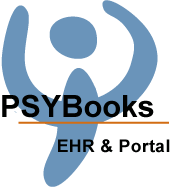Manual Index
-
Chapters
The Manual is divided into seven chapters. Click a chapter title to display that chapter's table of contents in the area below.
Chapter Three
A Client Chart
PSYBooks Manual
Chapter Three
Add Notes > Treatment Plan
What this isThe Treatment Plan is meant to be used in conjuction with Progress Notes, although each can be used as a stand-alone tool if you prefer. Treatment Plans are mostly structured - which means you fill them in primarily with checkboxes and select boxes instead of having to type everything from scratch.What it looks likeThe Treatment Plan is accessed here: 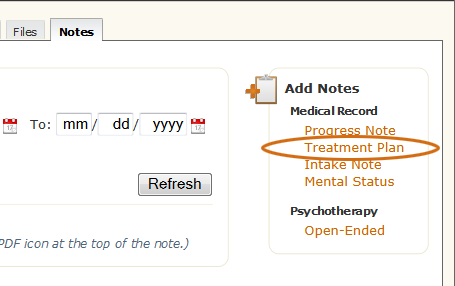 |
Where this isOpen a client's chart by clicking their name in the table on the Charts page. Then navigate to the Notes section of the chart by clicking the Notes tab. The link to the Treatment Plan is in the Add Notes section on the top right. |
Although the form for the Treatment Plan may seem long, since it's a structured form, it can be filled out quickly. The Treatment Plan form looks like this:
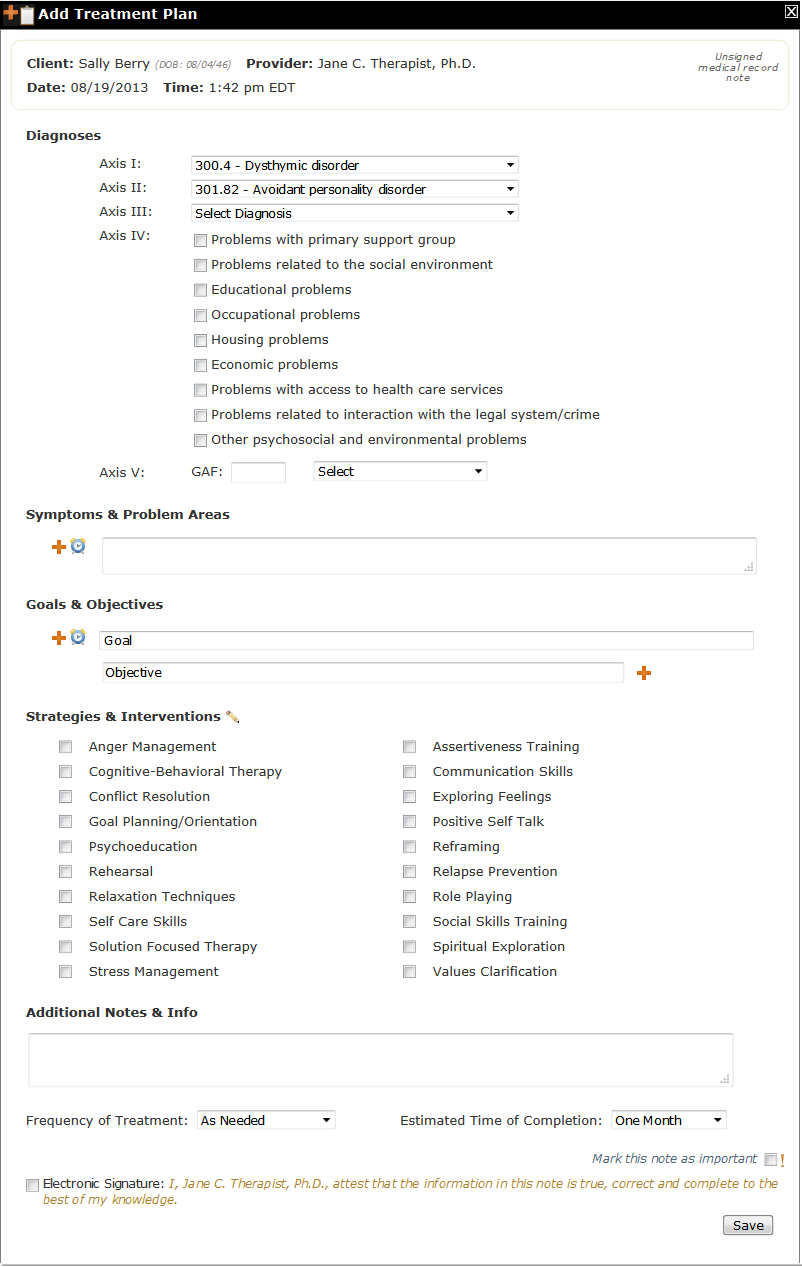
Since the Treatment Plan and Progress Notes were designed to be used together, the values you enter in the Treatment Plan will be used to pre-populate subsequent Progress Notes. The sections of the Treatment Plan, which are almost identical to the sections of the Progress Note, will be discussed separately below:
Diagnoses
The Diagnoses section of the Treatment Plan looks like this:

If you had already added a session with a diagnosis before opening the Treatment Plan, the diagnosis you used in the session would be listed here. However, you're free to change it at any time. The next time you add a session, if the diagnosis on the current Treatment Plan is different from what you last used for a session, you'll be asked if you want to change it.
Symptoms & Problem Areas
The Symptoms & Problem Areas section of the Treatment Plan looks like this:

You can fill in your client's symptoms and problem areas in the textarea. The orange plus icon on the left allows you to open additional textareas if your client has more than one type of symptom you want to report separately. PSYBooks keeps track of all of the values you've written in
The Plus Icon
The orange Plus icon will open a new textarea where you can write additional symptoms and/or problem areas.
The History Icon (alarm clock)
The History icon opens a small window where you can see values you've entered in this field in previous Treatment Plans.
Goals & Objectives
The Goals & Objectives section of the Treatment Plan looks like this:

Goals and objectives you enter here will be carried to the Progress Note form where you can report your client's progress toward the goals you set here.
The Plus Icon
There are two orange Plus icons in this section. The one on the Goal line to the left of the alarm clock opens new fields where you can write additional goal/objective pairs. The one to the right of the Objective textbox allows you to write more than one objective for any goal.
The History Icon (alarm clock)
The History icon opens a small window where you can see values you've entered in this field in previous Treatment Plans and Progress Notes.
Strategies & Interventions
The Strategies & Interventions section of the Treatment Plan looks like this:
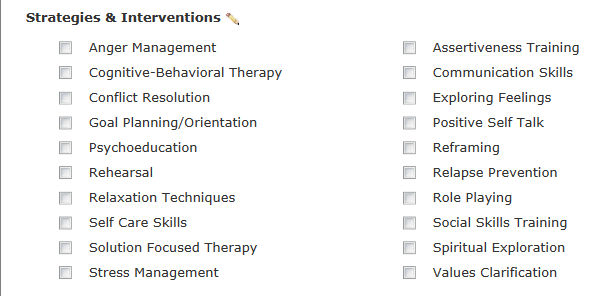
The items in the list can save you some time by allowing you to just check boxes instead of having to type. PSYBooks provides samples of possible mental health strategies & interventions but you're free to edit the list with the Edit Strategies & Interventions tool discussed below:
Edit Strategies & Interventions Tool
The pencil icon next to the title "Strategies & Interventions" is a tool that allows you to edit the list. The tool looks like this:

Clicking it opens this form:
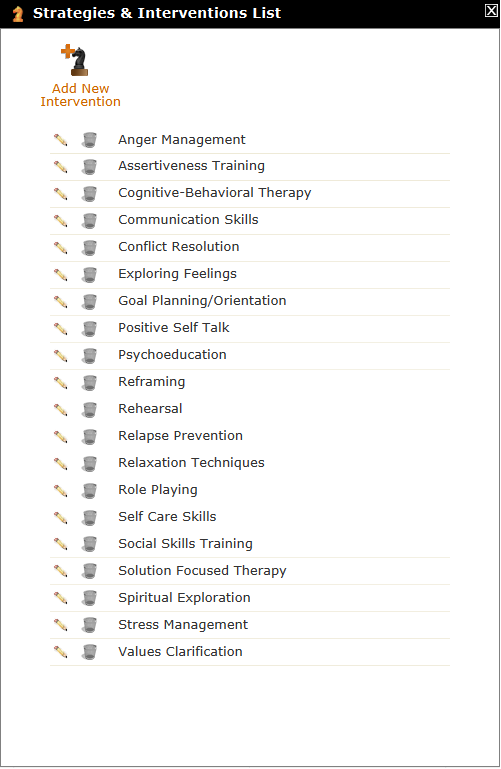
You can edit or delete items from this list. Deletions are permanent but you can always add an item again with the Add New Intervention tool at the top of this form. There is only one Strategies & Interventions list in PSYBooks but that list is accessed by both the Treatment Plan and the Progress Note. That means that any changes you make on the Treatment Plan Strategies & Interventions list will carry to the Progress Note list and vice versa.
Add New Intervention Tool
Clicking the Add New Intervention tool at the top of the Edit Strategies & Interventions List form opens a section where you can add a new intervention to the list. It looks like this:
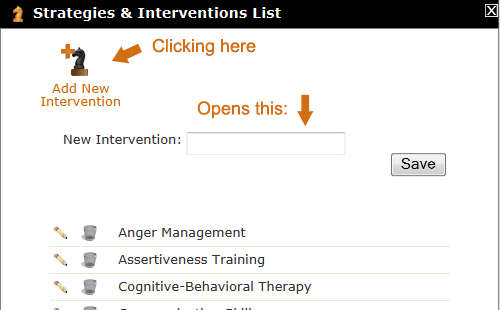
Additional Notes & Info
The Additional Notes & Info section of the Treatment Plan looks like this:
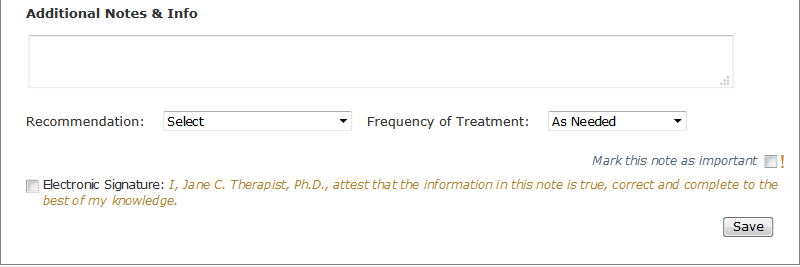
This section of the Treatment Plan is an unstructured portion of the form with a textarea where you can write whatever you wish. This area also contains some additional fields (Recommendation and Frequency of Treatment), the Mark as Important tool and the signature block.
How the Treatment Plan is displayed on the Notes page
Since the Treatment Plan is a long form, it's displayed on the chart's Notes tab as a closed link like this:
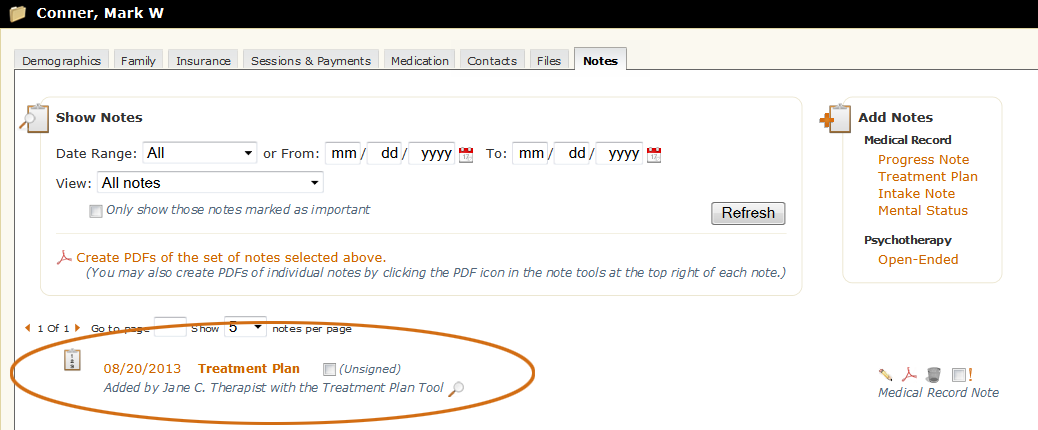
You can open it to read by clicking the Treatment Plan link or the Edit Note tool on the right.

